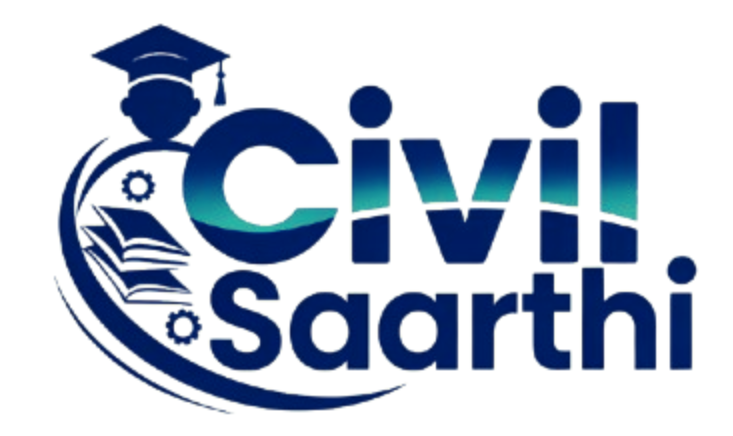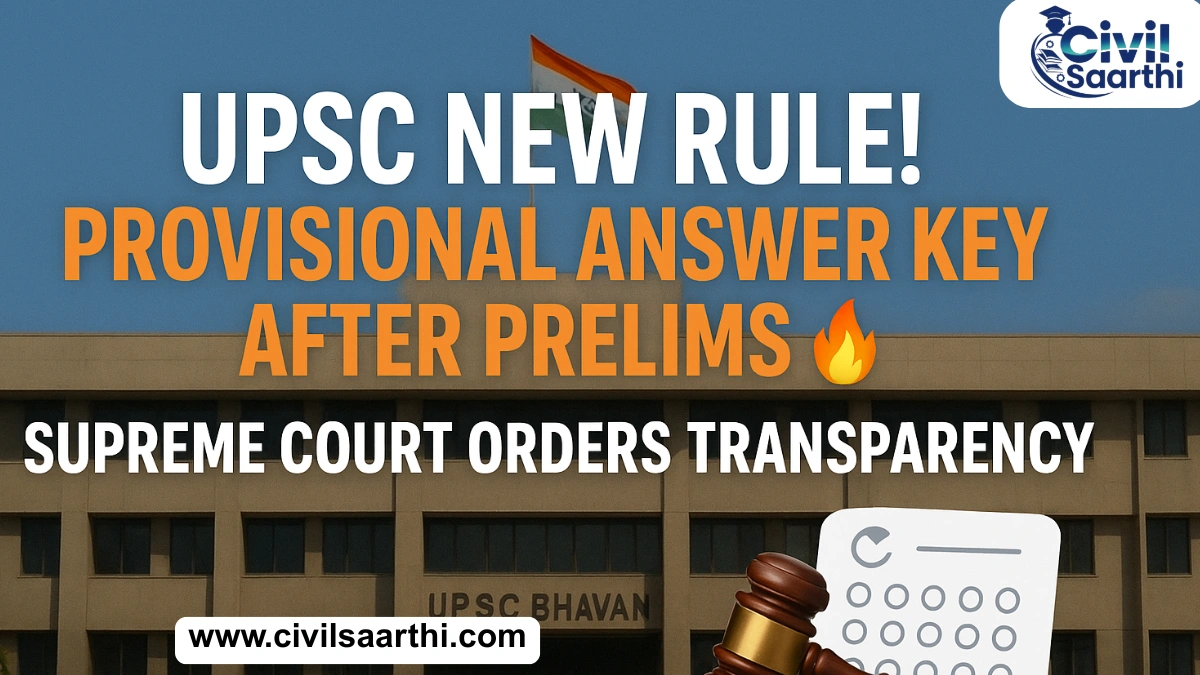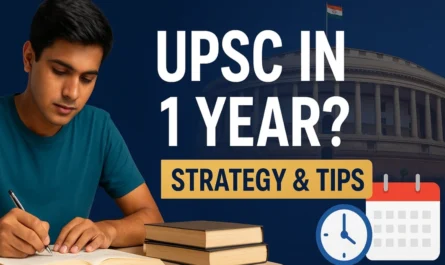The Union Public Service Commission (UPSC) is set to introduce a major reform in its examination process by releasing a provisional answer key immediately after the Civil Services Preliminary Examination. This decision comes following directions from the Supreme Court of India, emphasizing transparency, fairness, and accountability in one of the country’s most competitive examinations.
This landmark move marks a significant shift in UPSC’s long-standing practice of releasing answer keys only after the final results of the exam cycle are declared. For lakhs of aspirants, this reform is both a relief and a milestone toward a more transparent evaluation system.
Background: The Traditional UPSC Answer Key Practice
Traditionally, UPSC published the official answer key, cut-off marks, and candidate scores only after the entire exam cycle — including the Preliminary, Mains, and Personality Test — was completed.
This often meant aspirants had to wait almost a year to verify their answers.
Key Issues with the Old System:
Delayed feedback: Candidates could not assess their actual performance post-Prelims.
No scope for correction: Ambiguities or errors in the question paper went unchallenged.
Lack of transparency: The delay raised doubts about fairness and credibility among aspirants.
Limited learning: Candidates couldn’t analyze mistakes in time for future attempts.
Supreme Court Case: Push for Transparency and Fairness
Origin of the Case
A group of aspirants approached the Supreme Court, requesting the timely release of UPSC’s answer keys after the Prelims exam. They argued that delayed disclosure violated principles of natural justice and deprived candidates of their right to challenge wrong questions or answers.
Court Proceedings
The case was heard by a bench of Justices P. S. Narasimha and Manoj Misra.
The Court appointed Senior Advocate Jaideep Gupta as amicus curiae (a neutral legal advisor) to recommend a fair and practical procedure.
After multiple hearings, the Court recognized that transparency in public examinations is essential to ensure credibility and trust.
Supreme Court’s Observation
The judges noted that competitive exams like the UPSC Civil Services Examination must adhere to the principles of fairness, openness, and accountability as they select future civil servants who uphold these very values.
UPSC’s Response to the Supreme Court
Initially, UPSC expressed concerns regarding:
The administrative workload involved in reviewing objections.
The possibility of increased litigation if candidates start challenging multiple questions.
The need to maintain confidentiality and integrity of question-setting procedures.
However, in its affidavit submitted in September 2025, UPSC accepted the proposal and committed to releasing a provisional answer key after the Prelims. The Commission described this as a step toward “responsible transparency without compromising exam integrity.”
New Guidelines: How UPSC Will Release Provisional Answer Keys
The new policy framework introduces a structured mechanism for publishing, reviewing, and finalizing the answer keys.
1. Release of Provisional Answer Key
UPSC will now upload the provisional answer key within a few days of the Prelims examination.
The key will be available on the official UPSC website for a limited duration.
Candidates can compare their responses and identify possible discrepancies.
2. Objection and Representation Process
Aspirants will get an opportunity to challenge any answer or question they believe to be incorrect.
Key Features of the Objection Process:
Each candidate can submit objections online within a stipulated time frame.
Every objection must be supported by at least three credible and verifiable sources, such as:
NCERT or NIOS textbooks
Standard UPSC reference books (Laxmikanth, Spectrum, Ramesh Singh, etc.)
Government reports, press releases, or official documents
Unsupported or vague challenges will not be entertained.
3. Evaluation by Expert Committee
UPSC will form subject-wise expert committees to review all objections.
The committees will verify the validity and reliability of the sources provided.
If any error is confirmed, the provisional key will be revised accordingly.
4. Final Answer Key and Result
The final answer key, reflecting necessary corrections, will be used to evaluate candidate scores and determine Prelims results.
After results are declared, the final version of the key will also be uploaded publicly for reference.
5. Implementation Timeline
The Supreme Court has directed UPSC to implement the new system “as expeditiously as possible”—expected from the UPSC CSE 2025 cycle onward.
Benefits of the New Policy
For Aspirants
Transparency: Candidates gain confidence in the fairness of evaluation.
Timely Learning: They can identify mistakes early and adjust strategies for future exams.
Fairness: Errors in the answer key can be corrected before results are finalized.
Informed Preparation: The provisional key helps aspirants understand UPSC’s evolving question patterns.
For UPSC and the System
Public Trust: The move strengthens UPSC’s reputation as a transparent and accountable body.
Reduced Speculation: It minimizes confusion and misinformation circulating online after the exam.
Alignment with Global Standards: It brings UPSC closer to international testing practices like GRE, GMAT, and IELTS, where provisional keys are common.
Potential Challenges in Implementation
While the reform is widely welcomed, it presents logistical and legal challenges for UPSC.
Volume of Objections: Lakhs of aspirants may file multiple objections, creating a huge administrative load.
Authenticity Verification: Determining valid “authoritative sources” may lead to subjective interpretation.
Possible Delays: Reviewing objections could extend result timelines if not managed efficiently.
Increased Litigation: Aspirants might approach courts if dissatisfied with UPSC’s decisions.
Data Handling: Managing digital submissions securely is crucial to avoid leaks or manipulation.
To mitigate these issues, UPSC is likely to develop an automated online objection portal and strengthen its subject expert network.
Expert and Legal Opinions on the New Policy
Legal Perspective
Legal scholars have hailed the Supreme Court’s intervention as a landmark move for exam transparency. They argue that as a constitutional body under Article 315, UPSC must maintain the highest standards of procedural fairness.
Educational Analysts’ Views
Education experts believe that this change will:
Encourage accountability in question-setting.
Promote data-driven feedback for future exams.
Reduce misinformation spread through unofficial answer keys.
Views from Former Bureaucrats
Retired IAS and IPS officers have welcomed the step, calling it a progressive measure that builds trust between aspirants and the Commission.
Judicial Significance and Historical Context
The judiciary has played a key role in enforcing fairness in recruitment processes.
This case builds upon earlier judgments such as:
Union Public Service Commission vs. Angesh Kumar (2018): The Supreme Court emphasized that transparency must not compromise confidentiality but should ensure fairness.
CBSE vs. Aditya Bandopadhyay (2011): The Court ruled that answer sheets can be disclosed under RTI, strengthening exam accountability.
These judgments laid the foundation for the current reform, reaffirming that exam bodies must balance secrecy with fairness.
Broader Impact on Other Government Examinations
The UPSC reform could set a benchmark for other examination authorities, including:
Staff Selection Commission (SSC)
State Public Service Commissions (PSCs)
Railway Recruitment Boards (RRB)
Banking and Insurance recruitment bodies
Many of these agencies already release provisional keys, but UPSC’s structured approach will likely influence uniform national standards for transparency.
What Aspirants Should Do Now
Step-by-Step Preparation for the New System:
Stay Updated: Regularly visit UPSC’s official portal for new notifications.
Prepare Source References: While studying, note down sources that can later be used to justify objections.
Analyze Carefully: Review each question logically once the key is released.
Submit Objections Wisely: Challenge only those questions backed by strong evidence.
Learn from Mistakes: Use the provisional key to identify weak areas and improve for Mains or future attempts.
This reform not only increases fairness but also provides aspirants with a valuable learning tool to refine their preparation.
Way Forward
UPSC’s decision represents a balanced approach between transparency and exam integrity.
Going forward, the Commission may:
Digitize its entire evaluation process.
Release a detailed objection policy document.
Conduct mock objection rounds for smooth implementation.
Collaborate with education experts to improve question-setting standards.
If executed properly, this reform could make UPSC a model of accountable governance, aligning with India’s vision of transparent and technology-driven public administration.
FAQs on UPSC Provisional Answer Key Policy
Q1. When will UPSC release the provisional answer key?
It will be released a few days after the Prelims examination, before the declaration of results.
Q2. Can candidates challenge the answers?
Yes. Aspirants can raise objections online with at least three reliable supporting sources.
Q3. What happens after objections are submitted?
An expert committee will evaluate them, and valid corrections will be made before final results.
Q4. Will this apply from UPSC CSE 2025 onwards?
Yes, UPSC plans to implement the system from the 2025 examination cycle.
Q5. Will this delay results?
UPSC aims to manage objections efficiently to prevent any delay in result publication.
Q6. Can the objection process be misused?
UPSC will accept only evidence-based objections, reducing chances of misuse or frivolous claims.
Conclusion
The Supreme Court’s directive compelling UPSC to release a provisional answer key after Prelims marks a revolutionary change in India’s examination landscape. It aligns with the democratic ideals of transparency, fairness, and accountability.






